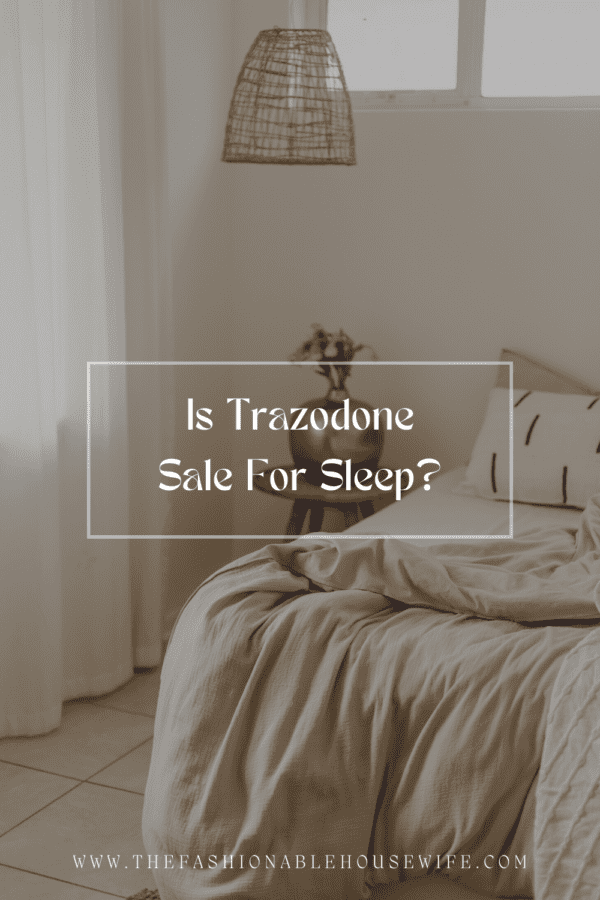
Sleep, a fundamental part of human life, can sometimes prove elusive for various reasons. Sleep disorders such as insomnia make a good night’s rest a distant dream for some individuals. This often leads to exploring various solutions and, in many cases, using pharmaceutical aids. Trazodone, a medication initially developed as an antidepressant, has found a place in the sleep aid landscape primarily because of its drowsiness-inducing effect.
But, “Is trazodone for sleep safe?” This question has become increasingly relevant as more and more people turn to this drug in their quest for restful sleep. This article explores the safety, application, and potential risks of using trazodone for sleep.
Trazodone: What is it?
Trazodone is a member of the serotonin modulators drug class, which is largely used to treat depression. By manipulating the serotonin levels in the brain, trazodone can aid in managing depression symptoms and other mood disorders. Apart from depression, trazodone is also employed in treating conditions like chronic pain and fibromyalgia. But the drug can induce drowsiness and improve sleep quality, leading to its use in managing insomnia.
Form and Concentration
Trazodone is available in both immediate-release and extended-release forms. The immediate-release variant is typically administered in divided doses throughout the day, while the extended-release form is taken once daily at bedtime. The latter is frequently favored for treating insomnia because it may aid patients in staying asleep all night. The drug has various strengths, including 50mg, 100mg, 150mg, and 300mg.
Usage and Effect
Trazodone, like any medication, should be taken under the supervision of a healthcare professional and strictly adhere to the prescribed dosage. Misuse of the drug can lead to tolerance, dependency, and addiction. Symptoms of addiction include compulsive use, seeking multiple prescriptions, experiencing withdrawal symptoms when attempting to quit, changes in behavior, neglecting personal hygiene, and continued use despite adverse consequences.

Potential Side Effects
Common side effects of trazodone include dizziness, drowsiness, headache, dry mouth, blurred vision, and constipation. Some individuals might experience more serious, though less common side effects such as low blood pressure, seizures, and priapism (a painful and prolonged erection). It’s crucial to seek medical attention immediately if any severe symptoms appear while taking trazodone.
Interactions and Precautions
Trazodone can interact with other medications like antidepressants, antihistamines, and opioids. Moreover, it should not be combined with alcohol or other substances that can cause drowsiness, as this could increase the risk of side effects.
Conclusion
In conclusion, while trazodone is an effective treatment option for insomnia and other sleep disorders, it is important to be mindful of the potential risks associated with its use. Trazodone, like any medication, should always be used under the supervision of a healthcare professional and strictly following prescribed guidelines.
If you’re considering using trazodone for sleep, it’s crucial to have a comprehensive understanding of its effects, potential side effects, and the risk of dependency. This way, you can make an informed decision, ensuring your journey to better sleep is effective and safe. While pharmaceuticals may offer a solution, they should be complemented by healthy sleep hygiene and lifestyle modifications for the best, long-lasting results.





